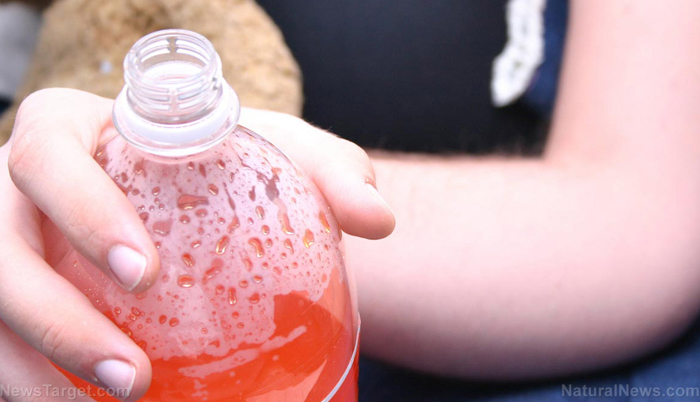![]() Home > Health
Home > Health
Juices, Soft Drinks Found To Contain Trace Levels Of Toxic Metals: INVESTIGATION

News Target | Natural News
![]() May 9th, 2023 | 11:07 AM |
May 9th, 2023 | 11:07 AM | ![]() 405 views
405 views
NATURALNEWS
They never appear as such to the naked eye, but fruit juices, sodas, and other store-bought beverages are often tainted with toxins, according to new research out of Tulane University.
Scientists there tested many different popular beverage brands to see what might be hiding underneath their bright colors and fancy packaging. They discovered everything from arsenic to cadmium to lead in their contents – and in some cases at levels far above federal standards for drinking water.
Two mixed juices in particular were found to contain arsenic levels above and beyond the government water limit of 10 micrograms (mcg) per liter. A cranberry juice beverage, a mixed carrot and fruit juice beverage, and an oat milk product were also found to contain cadmium levels above and beyond the government limit of three parts per billion (ppb).
Unfortunately for our readers, the scientists involved did not single out any specific brand names, so you will not be able to identify them yourself. We do know that each of the brands tested is popularly and commonly sold in American grocery stores.
The products tested include single and mixed fruit juices, “plant-based” milk-like drinks such as oat and soy, as well as various soda and tea beverages. The research involved testing for 25 different toxic metals and trace elements considered to be harmful.
“Overall, mixed fruit juices and plant-based milks (including oat and almond milk) contained higher levels of toxic metals than other drinks in the study,” Study Finds reported.
Popular juice, soda beverages also tainted with nickel, strontium, and other metals
The team also identified varying levels of nickel, manganese, boron, cadmium, strontium, arsenic, and selenium in the beverages, well exceeding federal water standards for such contaminants.
A staggering 93 percent of the beverages tested were found to contain detectable levels of lead, though most contained very low levels of it below 1 ppb.
One lime-flavored sports drink was found to contain 6.3 micrograms per kilogram (mcg/kg) of lead, the highest detected in the study, but this is still below the standards set by the U.S. Environmental Protection Agency (EPA) for water.
“It was surprising that there aren’t a lot of studies out there concerning toxic and essential elements in soft drinks in the United States,” said Tewodros Godebo, an assistant professor of environmental health sciences at Tulane’s School of Public Health and Tropical Medicine.
“This creates awareness that there needs to be more study.”
According to Godebo and his team, consumers need not worry all that much since, on average, they drink far less of these flavored beverages than they do water, which is the substance the federal government assesses for when setting contamination thresholds.
Unless a person is downing fruit juice and soda in the same way an average person drinks water, in other words, then the presence of these contaminants is likely nothing to worry about for most people.
On the other hand, Godebo recommends that people stop feeding their young children these products because of the risks involved.
“People should avoid giving infants and young children mixed-fruit juices or plant-based milks at high volume,” he said in a university release.
“Arsenic, lead, and cadmium are known carcinogens and well established to cause internal organ damage and cognitive harm in children, especially during early brain development.”
While it may appear as though there is a manufacturing problem linked to all this metal contamination, Godebo says the real problem is actually the toxic soils from which these juices are derived.
“These metals are naturally occurring, so it’s hard to get rid of completely,” he said.
Source:
courtesy of NATURALNEWS
by Ethan Huff
If you have any stories or news that you would like to share with the global online community, please feel free to share it with us by contacting us directly at [email protected]